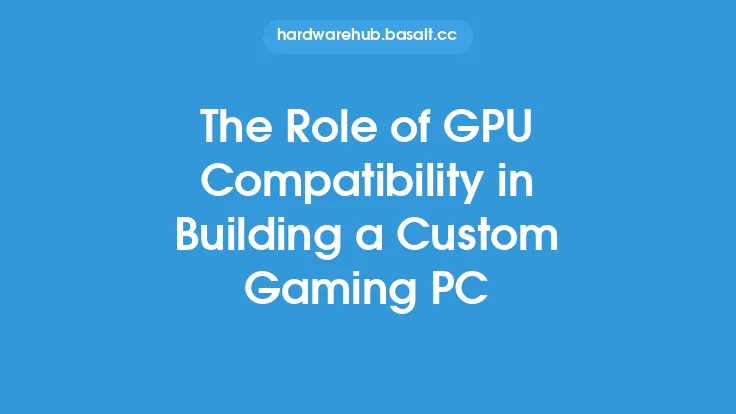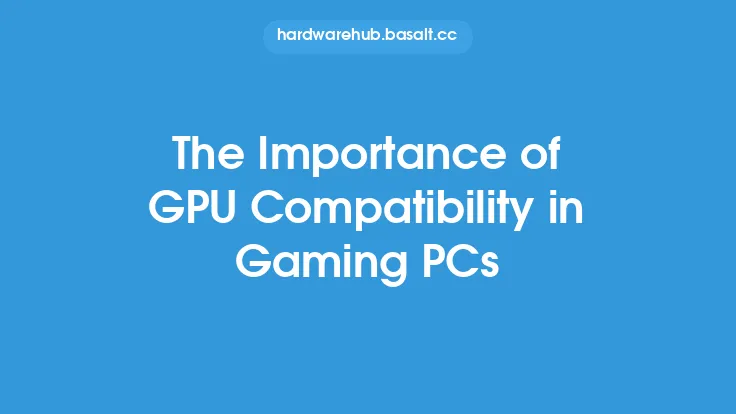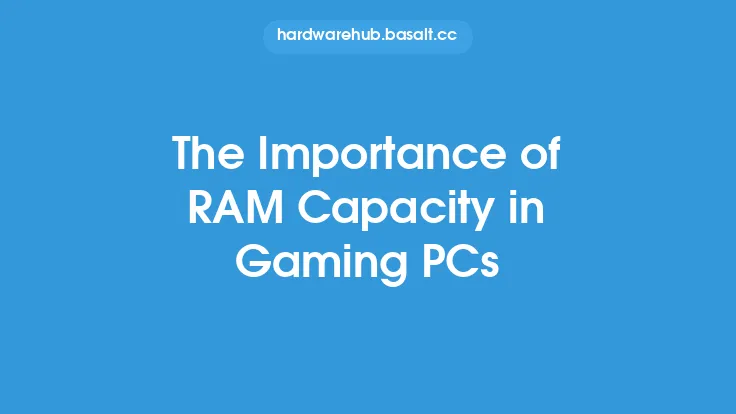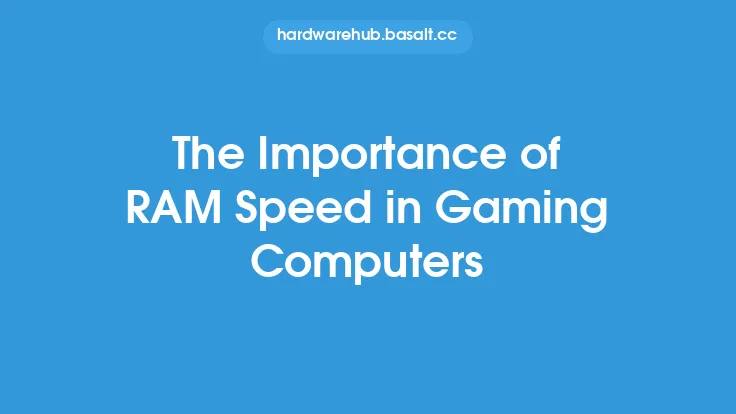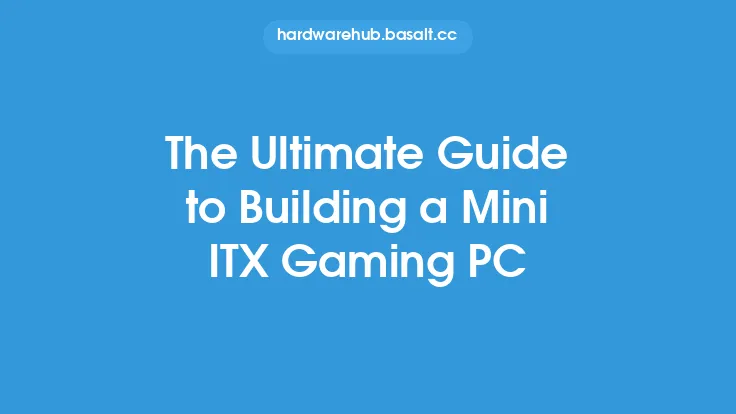When building a gaming PC, there are several components that need to be carefully selected to ensure optimal performance. One of the most critical components is the Random Access Memory (RAM). RAM plays a vital role in determining the overall performance of a gaming PC, and its compatibility with other components is crucial. In this article, we will delve into the importance of RAM compatibility in building a gaming PC and explore the technical aspects of RAM compatibility.
Introduction to RAM Compatibility
RAM compatibility refers to the ability of the RAM to work seamlessly with the motherboard, CPU, and other components of the gaming PC. It is essential to ensure that the RAM is compatible with the motherboard, as incompatible RAM can lead to system crashes, freezes, and poor performance. The compatibility of RAM depends on several factors, including the type of RAM, speed, and capacity. There are several types of RAM available, including DDR3, DDR4, and DDR5, each with its own set of specifications and compatibility requirements.
Types of RAM and Their Compatibility
The most common types of RAM used in gaming PCs are DDR3, DDR4, and DDR5. Each type of RAM has its own set of specifications and compatibility requirements. DDR3 RAM is an older type of RAM that is still used in some older systems, but it is not compatible with newer motherboards that support DDR4 or DDR5 RAM. DDR4 RAM is the most widely used type of RAM in gaming PCs and is compatible with most modern motherboards. DDR5 RAM is the latest type of RAM and offers faster speeds and higher capacities than DDR4 RAM. However, DDR5 RAM is only compatible with motherboards that specifically support it.
RAM Speed and Compatibility
The speed of the RAM is another critical factor that affects its compatibility. RAM speed is measured in MHz and refers to the rate at which the RAM can transfer data. Faster RAM speeds can improve system performance, but they may not be compatible with all motherboards. For example, a motherboard that supports DDR4 RAM may only support speeds up to 3200MHz, while a faster RAM kit with a speed of 3600MHz may not be compatible. It is essential to check the motherboard manual or manufacturer's website to determine the maximum supported RAM speed.
RAM Capacity and Compatibility
The capacity of the RAM is also an important factor that affects its compatibility. The capacity of the RAM refers to the amount of data that it can store. Most modern gaming PCs require at least 16GB of RAM, while more demanding games and applications may require 32GB or more. However, the capacity of the RAM must be compatible with the motherboard. For example, a motherboard may only support up to 64GB of RAM, while a larger RAM kit with a capacity of 128GB may not be compatible.
Dual Channel and Quad Channel RAM Configurations
Dual channel and quad channel RAM configurations can also affect RAM compatibility. Dual channel RAM configurations use two RAM sticks to increase the bandwidth and improve system performance. Quad channel RAM configurations use four RAM sticks to further increase the bandwidth and improve system performance. However, these configurations require specific RAM kits and motherboards that support them. For example, a motherboard that supports dual channel RAM configurations may require two identical RAM sticks with the same speed and capacity.
RAM Timings and Compatibility
RAM timings, also known as latency, can also affect RAM compatibility. RAM timings refer to the delay between the time that the CPU requests data from the RAM and the time that the data is available. Lower RAM timings can improve system performance, but they may not be compatible with all motherboards. For example, a motherboard may only support RAM timings of 16-16-16-36, while a RAM kit with timings of 14-14-14-34 may not be compatible.
Conclusion
In conclusion, RAM compatibility is a critical factor that affects the performance of a gaming PC. The type of RAM, speed, capacity, dual channel and quad channel configurations, and RAM timings must all be compatible with the motherboard and other components to ensure optimal performance. When building a gaming PC, it is essential to carefully select the RAM and ensure that it is compatible with the motherboard and other components. By understanding the technical aspects of RAM compatibility, gamers can build a gaming PC that meets their performance requirements and provides an optimal gaming experience.
